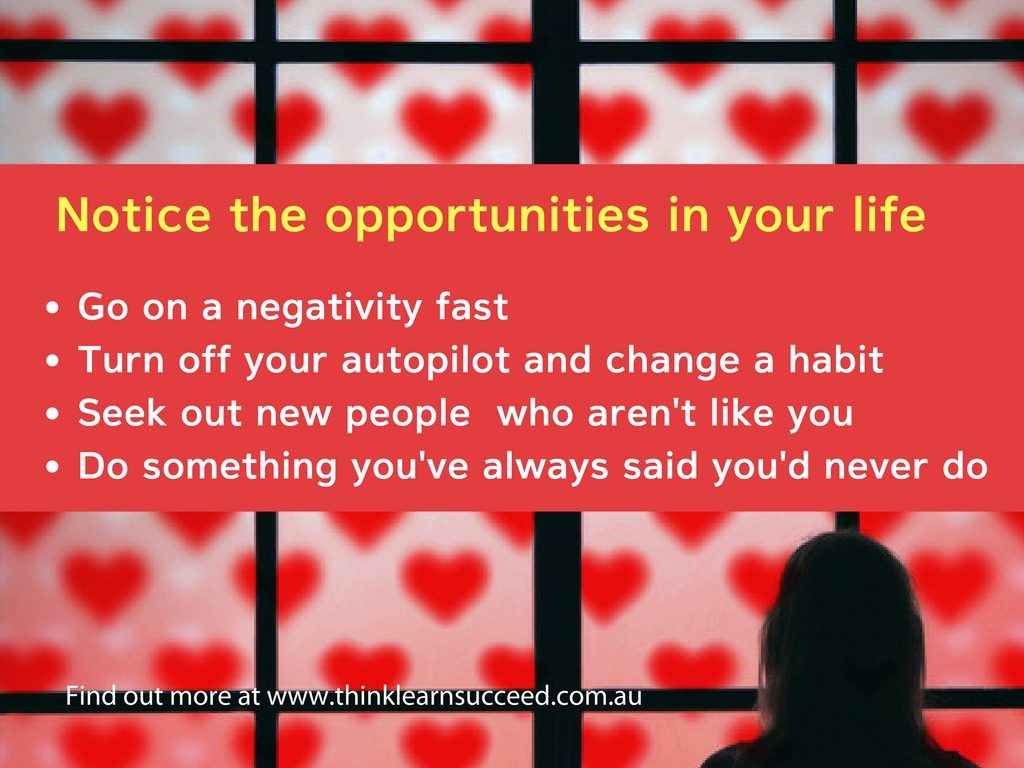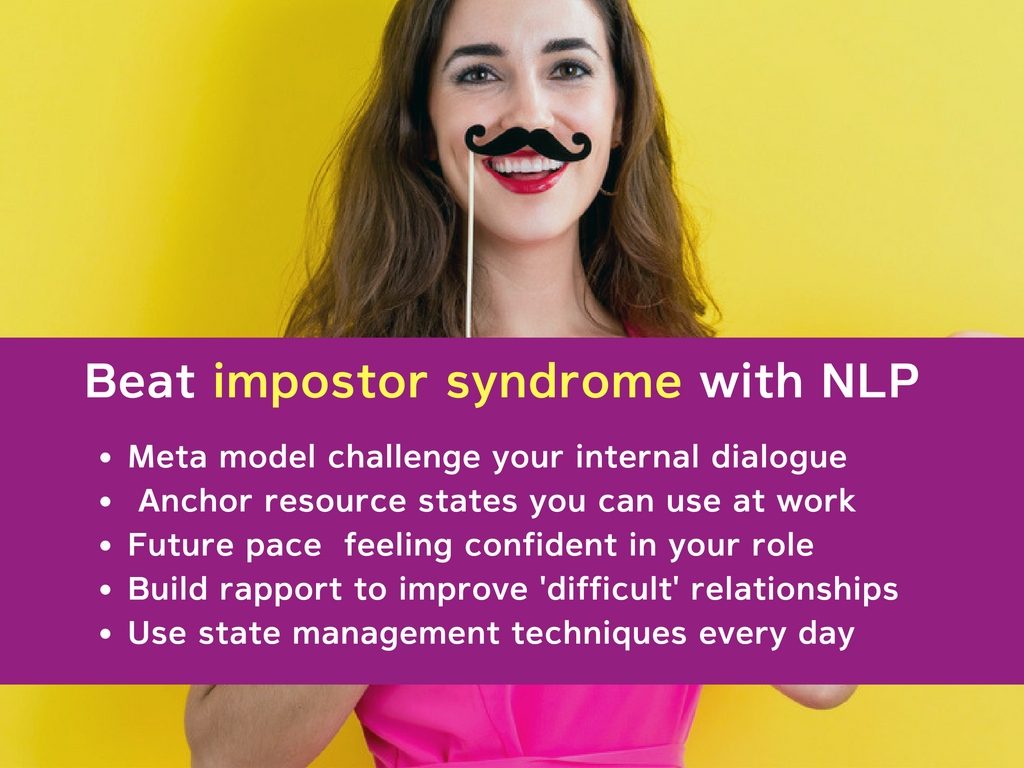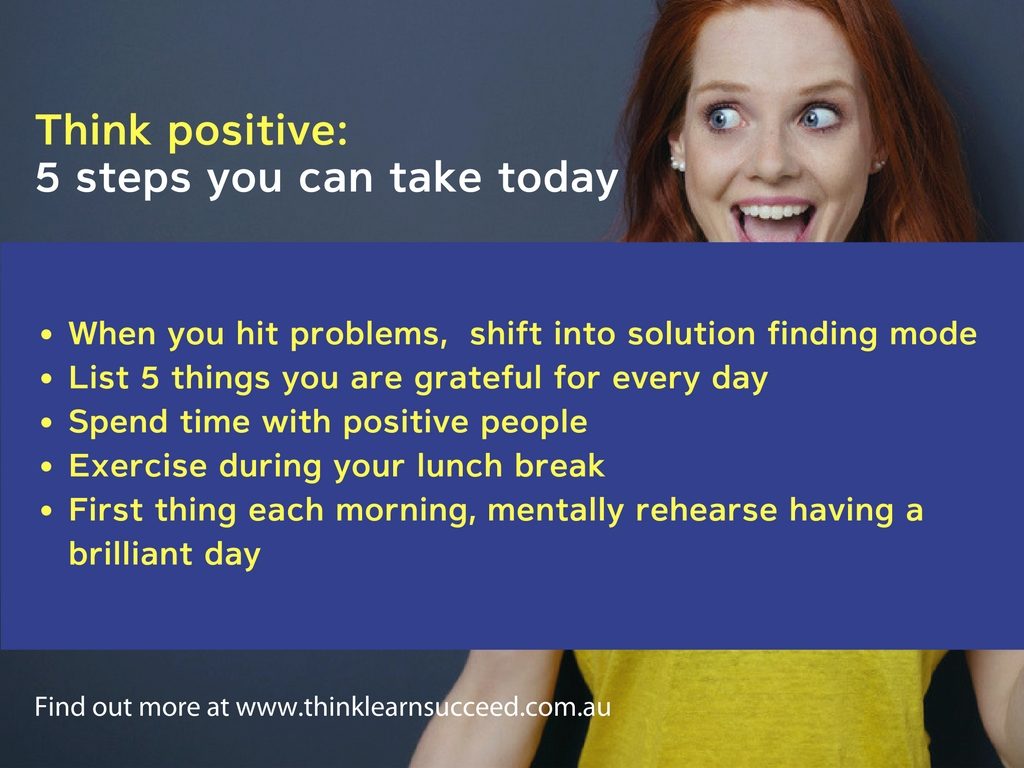Do you sometimes wish you had more opportunities in life? If so, it might be time to start paying attention to existing opportunities that you are missing. It’s easy to miss potential opportunities when you’re busy with day-to-day life.
Positive psychologists have shown that people who take opportunities are the people who notice them in the first place. You can change your awareness so that you’re able to catch opportunities when they present themselves.
In my work as a success coach I’ve noticed that women who take opportunities use the principles of positive thinking. If you want to do this there are four key steps you can take to make sure you’re checking out each doorway. Read more






 Are you plagued by negative self-talk? Then it’s time to change your thinking habits. Find out how in this inspiring video on how to think positively, even in tough situations. Learn how to shift your negative self-talk by using cognitive reframing techniques. Change what your inner voice says and the tone you use when ‘talking to yourself’.
Are you plagued by negative self-talk? Then it’s time to change your thinking habits. Find out how in this inspiring video on how to think positively, even in tough situations. Learn how to shift your negative self-talk by using cognitive reframing techniques. Change what your inner voice says and the tone you use when ‘talking to yourself’. 


